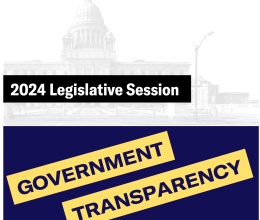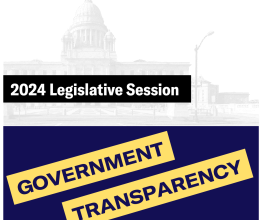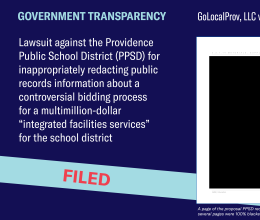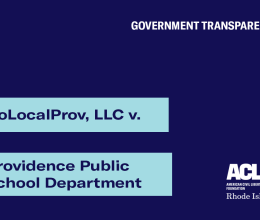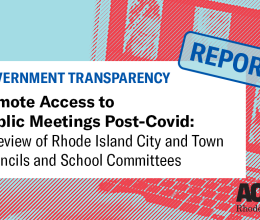Calling it “a major victory for transparency in our judicial system,” the Rhode Island ACLU today applauded comments from R.I. Supreme Court Chief Justice Paul Suttell, as reported in the Providence Journal, that the Court had no immediate plans to implement a controversial 25-year-old state law allowing retired judges to preside over secret civil cases for compensation. At a public hearing in January, the RI ACLU had raised numerous concerns about the proposal.
The earlier hearing before the R.I. Supreme Court dealt with proposed court rules to implement the “Retired Justice Trial Act,” a two-sentence statute first enacted in 1984 that allows litigants to hire retired judges to hear publicly-filed court cases in secret. It is unclear whether the statute has ever been used since its adoption a quarter of a century ago.
In written testimony submitted at the hearing, the RI ACLU called the privatization of the judicial system “extremely disturbing on many levels. Among the most troubling are its creation of a two-tiered system of justice that allows for swift resolution of cases only for those wealthy enough to afford it, and its direct impact on the fundamental right of the public to monitor court proceedings.”
The statute establishes a judicial process that is, by definition, secret. The RI ACLU emphasized that people who wish to conduct legal business in private already have the means to do so, through private arbitration and mediation proceedings. The “retired justice program,” however, has all the earmarks of regular court cases conducted under the auspices of the judicial branch, with one glaring difference – the proceedings are kept hidden from the public. “Closed-door justice is, and should be, anathema to our judicial system, which has long been guided by fundamental principles of transparency,” said the RI ACLU. In theory, the ACLU’s testimony noted, a judge presiding over a “private” court case could issue a ruling on the constitutionality of a state law.
The R.I. Association for Justice and the open government group ACCESS/RI joined with the ACLU in criticizing the proposed rules, the fate of which had been in limbo until Justice Suttell’s recent remarks. He indicated that if the court were to reconsider implementation of the program, another public hearing would be held. R.I. ACLU executive director Steven Brown today called the Chief Justice’s announcement “a major victory for transparency in our judicial system.”

